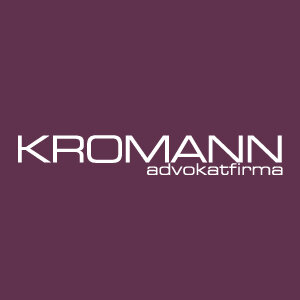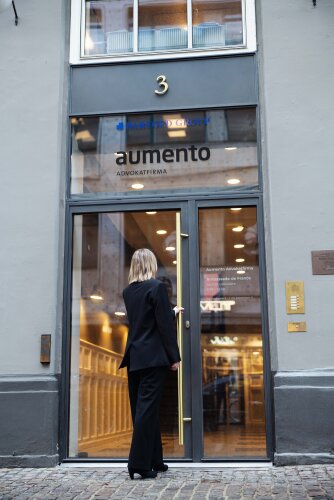Best Trusts Lawyers in Copenhagen
Share your needs with us, get contacted by law firms.
Free. Takes 2 min.
List of the best lawyers in Copenhagen, Denmark
About Trusts Law in Copenhagen, Denmark
Trusts are legal arrangements commonly used for the management and protection of assets in Copenhagen, Denmark. A trust involves three key parties: the settlor (who creates the trust), the trustee (who manages the trust assets), and the beneficiaries (who receive the benefits from the trust). Trusts can be set up for various purposes, such as estate planning, wealth preservation, charitable giving, or to protect assets from creditors.
Why You May Need a Lawyer
While it is not mandatory to hire a lawyer for establishing or managing a trust in Copenhagen, seeking legal advice can be beneficial in many situations. Some common scenarios where you may require legal help in trusts include:
- Creating a trust: An attorney can guide you through the complex legal process of setting up a trust according to Danish law, ensuring that all necessary legal requirements are met.
- Trust administration: If you are named as a trustee, a lawyer can assist you in fulfilling your fiduciary duties, managing the trust assets, and making important decisions in compliance with the law.
- Updating or amending a trust: If you have an existing trust and wish to make changes, an attorney can help you navigate the legal procedures and ensure that the modifications are properly executed.
- Disputes or litigation: In case of conflicts or disputes related to trusts, such as disagreements among beneficiaries or allegations of trustee misconduct, a lawyer can provide legal representation and help resolve the issues through negotiation or litigation.
- Tax considerations: Trusts may have significant tax implications. By consulting a lawyer specializing in trusts, you can ensure compliance with tax regulations and potentially minimize tax liabilities.
Local Laws Overview
Key aspects of local laws that are particularly relevant to Trusts in Copenhagen, Denmark include:
- Trustee Act: The Trustee Act governs the duties, responsibilities, and powers of trustees, ensuring they act in the best interests of the beneficiaries and comply with their legal obligations.
- Succession rules: Danish inheritance laws determine how assets held in a trust are distributed upon the death of the settlor or beneficiaries, including provisions for forced heirship and estate planning.
- Tax regulations: Trusts may be subject to various tax obligations, including income tax, wealth tax, and gift and inheritance tax. The attorney can assist in understanding and complying with the applicable tax rules.
- Contract law: Trusts are usually created through a trust deed or agreement. Understanding contract law is essential when drafting or interpreting trust documents.
Frequently Asked Questions
1. Can I be a settlor and beneficiary of the same trust in Denmark?
Yes, Danish law allows the settlor to also be a beneficiary of the same trust.
2. Can I revoke or terminate a trust in Copenhagen, Denmark?
In certain circumstances, it is possible to revoke or terminate a trust in Denmark. However, the specific terms and conditions of the trust agreement must be carefully reviewed, and legal advice is recommended to ensure compliance with the applicable laws.
3. Are trusts in Denmark required to be registered?
There is no central register for trusts in Denmark, and trusts are generally not required to be registered. However, certain tax-related information may need to be disclosed to the tax authorities.
4. Can I choose a foreign trustee for my Danish trust?
Yes, it is possible to appoint a foreign trustee for a Danish trust. However, it is essential to consider the implications of cross-border laws, tax requirements, and potential challenges in communication and administration.
5. How can I find out if a trust is the right option for me in Denmark?
To determine if a trust is suitable for your specific needs, it is advisable to consult with an experienced lawyer specializing in trusts. They can evaluate your circumstances, explain the advantages and disadvantages of trusts, and recommend the most appropriate solution based on your objectives.
Additional Resources
For further information and assistance regarding trusts in Copenhagen, Denmark, you may find the following resources helpful:
- The Danish Bar and Law Society: Visit their website for a directory of qualified lawyers specializing in trusts.
- The Danish Tax Authorities: Their official website provides information on the tax implications of trusts in Denmark.
- Copenhagen Trusts Association: This local organization may offer seminars, workshops, or resources related to trusts.
Next Steps
If you require legal assistance in matters related to trusts in Copenhagen, Denmark, the recommended next steps are:
- Research: Familiarize yourself with the basics of trusts, local laws, and potential challenges.
- Compile relevant documents: Gather any existing trust documents, contracts, or agreements that may be applicable to your situation.
- Consult a lawyer: Reach out to a trusted lawyer specializing in trusts law in Copenhagen. Provide them with details of your situation and concerns to receive personalized advice.
- Assess the options: After consulting the lawyer, carefully consider their advice and evaluate the available options to determine the best course of action.
- Execute the plan: Take necessary steps as per the lawyer's guidance, which may involve creating a trust, modifying an existing one, or resolving disputes through negotiation or litigation.
Lawzana helps you find the best lawyers and law firms in Copenhagen through a curated and pre-screened list of qualified legal professionals. Our platform offers rankings and detailed profiles of attorneys and law firms, allowing you to compare based on practice areas, including Trusts, experience, and client feedback.
Each profile includes a description of the firm's areas of practice, client reviews, team members and partners, year of establishment, spoken languages, office locations, contact information, social media presence, and any published articles or resources. Most firms on our platform speak English and are experienced in both local and international legal matters.
Get a quote from top-rated law firms in Copenhagen, Denmark — quickly, securely, and without unnecessary hassle.
Disclaimer:
The information provided on this page is for general informational purposes only and does not constitute legal advice. While we strive to ensure the accuracy and relevance of the content, legal information may change over time, and interpretations of the law can vary. You should always consult with a qualified legal professional for advice specific to your situation.
We disclaim all liability for actions taken or not taken based on the content of this page. If you believe any information is incorrect or outdated, please contact us, and we will review and update it where appropriate.
















